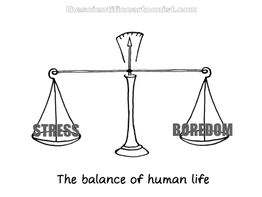God delights putting people into impossible situations. After starting full-time vocational ministry by faith, my wife said we would be out of money in three months since our income from supporters was 1/3 of what I made as an engineer. More than 24 years later, God has proven faithful in providing needed finances for our family and ministry. You may be facing a circumstance where your resources are exhausted and there seems to be no solution. Let’s examine how we should respond to impossible situations.
In Gen. 14, Abram felt the full weight of his disobedience in taking Lot with him as God called him to leave his relatives in Gen. 12:1. After risking his life to rescue Lot, God tells Abram not to fear because He would receive great reward, a multitude of descendants like the stars of heaven (Gen. 15:1-5). Abram was entering into a crisis of faith because his wife, Sarai, was beyond childbearing age. We find it hard to believe God’s promises when all evidence argues against it.
Gen. 15:6 is one of the most important verses of the Biblen where Abram believed God and He credited to his account His righteousness. Let look at the definitions of these three words in bold text:
1. Righteous means goodness or worth. Only God has this unchanging and perfect righteousness. The world only knows relative righteousness that sets up a comparison between two people.
2. Credited is accounting term defined by Webster’s Collegiate Dictionary as “an entry on the right-hand side of an account constituting an addition to a revenue or net worth.”
3. Believe means to place confidence in, rely on or trust. Abram received God’s gift by faith, not by anything he did. We don’t earn or deserve God’s grace. It’s given to us as a free gift by faith in God’s promise. The content of Abram’s belief was descendants being born from his own body. How would Abram be assured that God would keep His promise (Gen. 15:7-8)?
The most serious agreement in Abram’s culture was a blood covenant (Jer. 34:17-22). Abram understood the significance of this ritual. An animal would be killed and split into two sections. The two sections were then used to form a “corridor” for the parties of the covenant to walk through together (Gen. 15:9-10). Failure of either party to meet this obligation would result in being killed like the animal. Abram understood that both parties were obligated to keep the covenant.
Let’s trace what each party was doing. God, represented by a smoking firepot and burning torch, passed between the two sections of animals (Gen. 15:17). Abram, in contrast, was sleeping (Gen. 15:12). Since Abram did not walk between the two halves, He did not assume any responsibility. This is why it’s an unconditional covenant, not dependent on Abram’s obedience. All God requires from us is faith in His promise.
If you have not placed your faith in Jesus Christ’s payment for your sin when He died and rose again, God is asking you to trust His John 3:16 promise.
If you have experienced God’s unconditional promise or free gift of eternal life through Jesus Christ, you can trust Him in every detail of your life on earth, whether it seems impossible or mundane.
How does the Gen. 15:6 promise speak to you? How does it change your perspective on life?







